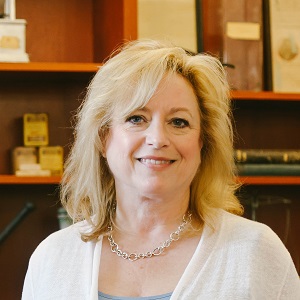Leadership
Dean
Angela Kashuba, B.Sc.Phm., Pharm.D., DABCP, FCP
Dean
John A and Margaret P McNeill, Sr Distinguished Professor
esop_dean@unc.edu
Office: (919) 966-1122
Reporting to the Executive Vice Chancellor and Provost, the Dean serves as the School’s Chief Executive Officer and provides academic, intellectual, administrative, and fiduciary leadership to the School. The Dean leads the effort in creating a vision and mission for the School, and executing the School’s strategic plan. The Dean has responsibility for academic and development functions, personnel, general administration and management, and budget.
Executive Leadership Team
The School’s Executive Leadership Team is comprised of four teams. These are the Dean’s Council, the Division Chairs, the Professional Program Leadership and the Graduate Program Leadership. The Executive Leadership Team provides advice and consultation to the Dean’s Council regarding School policy and strategy and serves as a primary conduit of information exchange between the Dean’s Office and the various divisions and units of the School.
DEAN’S COUNCIL
The Dean’s Council is responsible for decisions regarding School policy and strategy and ensuring execution on these strategies. Communication flows from the Dean’s Council to relevant stakeholders and/or the School Community.
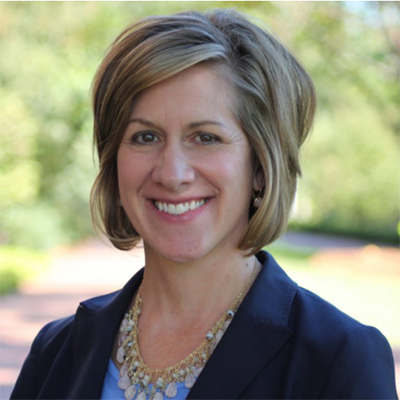
Mary McClurg, Pharm.D., M.H.S.
Executive Vice Dean-Chief Academic Officer
Professor
mroth@unc.edu
Office: 919-843-8083
The Executive Vice Dean-Chief Academic Officer (CAO) works with the Executive Vice Dean-Chief Operating Officer (COO) to serve and support the Dean. The CAO supervises the Division Chairs, providing support and guidance, and fostering faculty equity, engagement, professional development, and well-being. The CAO assists the division chairs with recruitment as it relates to salaries, start-ups, onboarding, orientation, and retention of faculty. The CAO oversees the Office of Organizational Effectiveness, Planning and Assessment; the Center for Innovative Pharmacy Education and Research; and the Office of Next in Education. The CAO chairs the School’s Education Advisory Committee, which is responsible for ensuring that all of the School’s educational programs, both residential and online, are innovative and impactful, and that implementation and assessment are aligned and well-coordinated across programs. In collaboration with the COO, the CAO is responsible for negotiating, implementing and managing contracts, MOUs, and other agreements for the School. The CAO engages with other Senior Associate Deans across campus to identify opportunities for collaboration and exchange of information and resources.
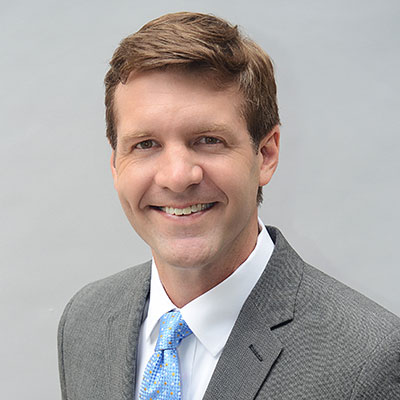
Scott Savage, Pharm.D., M.S.
Executive Vice Dean-Chief Operating Officer
scott.savage@unc.edu
Office: (919) 962-0055
The Executive Vice Dean-Chief Operating Officer (COO) and Chief Financial Officer (CFO) works with the Executive Vice Dean-Chief Academic Officer (CAO) to serve and support the Dean. The COO/CFO is responsible for leading and managing the administrative, business, and financial operations of the School along with supporting our Office of Student Affairs and Well-being and Resilience efforts. The COO/CFO oversees the following functions: Human Resources and Engagement; Business and Finance; Marketing and Communication; Facilities; and Information and Educational Technology. In collaboration with the CAO, the COO/CFO assists the division chairs with recruitment as it relates to salaries, space, start-up, onboarding, orientation, and retention of faculty. The COO/CFO, in collaboration with the CAO, is responsible for negotiating, implementing, and managing all contracts, MOUs, and other agreements for the School and serving as the CFO for the Eshelman Institute for Innovation (EII). Additionally, the COO/CFO works in conjunction with the Associate Dean for Research and Graduate Education to support the School-affiliated Research Centers and Core Facilities, and the Associate Dean for Admissions and Accreditation for the Pharm.D. program.
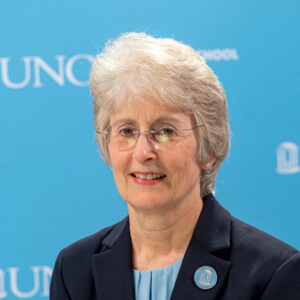
Kim Brouwer, Pharm.D., Ph.D.
Associate Dean, Research and Graduate Education
William R. Kenan Distinguished Professor
kbrouwer@unc.edu
Office: (919) 962-7030
The Associate Dean for Research and Graduate Education serves as the chief research officer for the School, providing oversight of the research, graduate, and postdoctoral training programs, and assisting the Dean in ensuring a strong research infrastructure and compliance with all UNC, state, and federal policies. Major areas of responsibility include: continued expansion of our research enterprise; oversight of grant and contract administration; management of funds to support the research and graduate programs; identification of funding mechanisms and development of programs to foster research and training, including partnerships with key constituents at the local, regional, national and global level; identification and coordination of training grant and multi-investigator, transdisciplinary collaborative research grant submissions; oversight of all School-affiliated U.N.C. Research Centers in conjunction with EVD-COO/CFO; and oversight of graduate and fellowship programs. The Office of Research and Graduate Education serves as the School’s liaison with internal and external constituents on all matters relating to research, graduate education, and postdoctoral training.
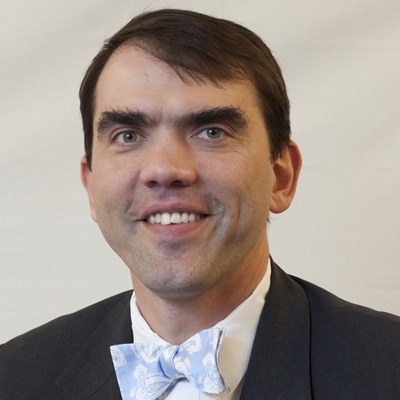
Stephen Eckel, Pharm.D., M.H.A.
Associate Dean, Global Engagement
Associate Professor
seckel@unc.edu
Office: (919) 962-0071
The Associate Dean for Global Engagement leads the Office of Global Engagement. The Associate Dean ensures that the School’s global activities are strategic, value-added, and opportunistic. The Associate Dean seeks to create and expand impactful global collaborations in education, research, and practice, and oversees the Global Pharmacy Scholars program, Innovations and Transformations in Pharmaceutical Science (ITPS), and the PharmAlliance partnership with Monash University and University College London. The Associate Dean assists faculty in advancing their global network and global ambitions. The Associate Dean works collaboratively with the Vice Provost for Global Affairs and Chief Global Officer and engages with all other units on campus to develop collaborative partnerships in global research, education, and practice.

Kelly Mansfield Collins
Associate Dean, Advancement and President of the Foundation
kellyc@unc.edu
Office: (919) 966-1963
The Associate Dean for Advancement leads alumni engagement and philanthropic activity to support all aspects of the School’s education, research, and public service mission. The Associate Dean serves as President of the UNC Eshelman School of Pharmacy Foundation, overseeing the functions of its 501(c)(3) status and board of directors, and manages the School’s scholarship program. Additionally, the Associate Dean serves as Executive Director of the Pharmacy Alumni Association and Lead Development Officer for the Eshelman Institute for Innovation. The advancement team leads efforts to create authentic alumni engagement opportunities and secures philanthropic investment from donors as well as corporate and foundation partners to advance the strategic priorities of the School.

Mollie Ashe Scott, Pharm.D. BCACP, CPP, FASHP
Regional Associate Dean, Asheville
Associate Professor
mollies@email.unc.edu
Office: 828-250-3900
Dean Mollie Scott serves as Regional Associate Dean on the Asheville Campus and Chair of the Department of Pharmacotherapy at Mountain Area Health Education Center. Major areas of responsibility include: oversight of the PharmD program for our students learning in Asheville; leading the UNC Health Sciences at MAHEC partnership; fostering collaborative relationships with strategic partners for education, practice, and research in Western NC; developing new partnerships and programs in Western NC to serve our students and the citizens of our state; and recruiting faculty, staff and students to the Asheville campus. She works closely with the executive committee to foster a culture on the Asheville campus that promotes the well-being and professional development of the faculty, staff, and study body in Asheville; and promotes interprofessional collaboration, community engagement, and practice advancement. Dean Scott leads the Ambulatory Care Certificate Program and practices as a Clinical Pharmacist Practitioner at MAHEC Family Health Center. Her interests are women’s health, practice advancement, and access to care.

Betsy Sleath, Ph.D.
Regional Associate Dean, Eastern North Carolina
George H. Cocolas Distinguished Professor
betsy_sleath@unc.edu
Office: (919) 962-0106
The Regional Associate Dean of Eastern North Carolina develops and maintains new strategic partnerships between the school and other units on campus, other post‐secondary institutions, health care systems, and other stakeholders in eastern North Carolina. They oversee the Eastern NC advisory board which is comprised of strategic partners, alumni, and faculty from other UNC system schools. The board advises the school on prioritizing opportunities in the East that will best serve our state and enrich our School. They will work with the Associate Dean for Advancement to identify possible avenues of funding to support partnerships in the region. They will work closely with the Director of Recruitment on events for early assurance and other potential students from Eastern NC universities and community colleges. Finally, they will be involved in the recruitment, orientation, and mentoring of new faculty and staff that will support eastern North Carolina partnerships.

Carla White, B.S. Pharm.
Associate Dean, Organizational Diversity and Inclusion
Assistant Professor
Carla@unc.edu
Office: (919) 966-7571
The Associate Dean for Organizational Diversity and Inclusion reports to the Dean and leads efforts to build capacity and create a sustainable infrastructure for innovations in Diversity Equity and Inclusion in alignment with the School’s Strategic Beyond Plan to impact organizational practices. Areas of responsibility include working collaboratively across the school and externally to address challenges to recruit and retain diverse talent; lead development and assessment of cultural intelligence in professional and graduate curricula; build an inclusive culture; identify relevant metrics; and develop strategic partnerships to achieve priorities.
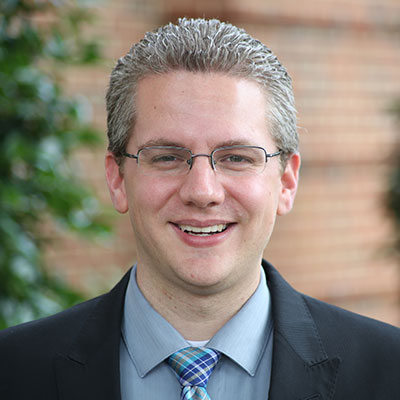
Roy Zwahlen
Associate Dean for Strategic Partnerships and Risk Management
Chief Strategy Officer, Eshelman Institute for Innovation
rzwahlen@email.unc.edu
Office: (919) 966-8911
The Associate Dean for Strategic Partnerships and Risk Management provides leadership for development and implementation across both the partnering and risk management domain of the school. As part of the risk management role, the Associate Dean educates School leadership on the changing risk environment, leads the development and implementation of initiatives to raise awareness and compliance in partnership with unit leads, assesses risks and develops mitigation strategies for School investment proposals and existing programs, and develops strategies to manage institutional gaps through risk identification and risk management processes. The Associate Dean drives strategic partnerships through building strategy around core priorities of the School, aligning campus and foundation offices with School leadership and faculty, developing procedures, and driving focus areas identified by leadership of the School.
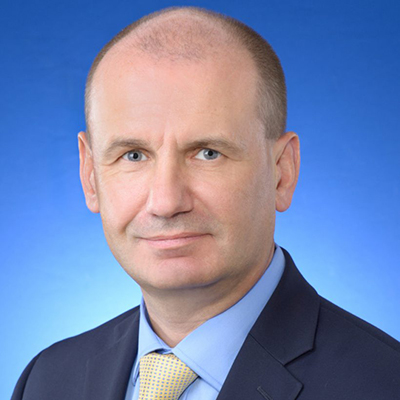
John Bamforth, Ph.D.
Executive Director of Eshelman Institute for Innovation
johnph@email.unc.edu
Office: (919) 966-7878
The Executive Director of the Eshelman Institute for Innovation at the UNC Eshelman School of Pharmacy is responsible for creating a culture of innovation and sustaining an innovation engine. The Executive Director will lead the Institute team in an effort to make the Eshelman Institute for Innovation (EII) a premier institution nationally and internationally where ideas are seeded, nurtured, and translated into transformative societal outcomes through innovation in pharmacy and pharmaceutical sciences education, pharmacy practice, and pharmaceutical sciences research.

Sara Pettaway
Director of Dean’s Operations
pettaway@email.unc.edu
Office: (919) 966-1122
The Director of Dean’s Operations is responsible for having an immediate impact on the UNC Eshelman School of Pharmacy’s unique programs, including streamlining strategic initiatives, overseeing program management, and communicating objectives to ensure alignment with the School, University, and external stakeholders. The Director of Dean’s Operations also provides leadership and administrative direction to the Dean’s Council (DC), which is responsible for decisions regarding School policy and strategy and ensures that these decisions are executed on time, on budget, and with a high degree of excellence. This position coordinates and facilitates decision-making for the School’s leadership by identifying focus areas, working with stakeholders to identify and gather appropriate information and data, ensuring efficient and timely decision-making, developing and delivering communication talking points and materials for School dissemination, and following up on action items as needed. They create and maintain internal and external relationships to enable leadership and School success and to cultivate consensus. The Director of Dean’s Operations is also a staff representative on the Dean’s Council.
DIVISION CHAIRS
The Chairs of the School’s five academic divisions are responsible for serving the Division faculty, staff, and students, and ensuring that the work of their respective Divisions is in strategic alignment with the mission of the School. The Chairs oversee their Division’s contributions to the professional, graduate, and postdoctoral training programs. Major areas of responsibility include: initiating and directing plans for recruitment and retention of faculty, as well as appointments, reappointments, promotion, tenure, and post-tenure actions in compliance with University requirements; managing the division budget; representing the Division within the School and with external constituencies and partners; building external partnerships to strengthen work within their respective divisions and the School; managing all division personnel activities, including staff and faculty evaluations; ensuring consistency in enforcement of policies and adequate documentation; and mentoring, guiding, and supporting their faculty.
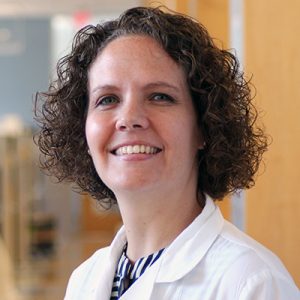
Kristy Ainslie, Ph.D.
Chair and Fred Eshelman Distinguished Professor, Division of Pharmacoengineering and Molecular Pharmaceutics
Professor, UNC Department of Biomedical Engineering, UNC Department of Microbiology and Immunology
ainsliek@email.unc.edu
Office: (919) 962-8907
The Chair of the Division of Pharmacoengineering and Molecular Pharmaceutics (DPMP) serves as the chief academic and administrative officer for the Division. The Chair is responsible for serving the Division faculty, staff, and students, and ensuring that the work of the Division across teaching, research, and education in pharmacoengineering and molecular pharmaceutics is in strategic alignment with the mission of the School.
In addition to the responsibilities summarized above for all chairs, the Chair of DPMP, in collaboration with the Associate Dean for Research, supervises the Director of the Center for Nanotechnology in Drug Delivery whose faculty role resides within DPMP to ensure alignment of Center activities with the mission of the Division and the School.
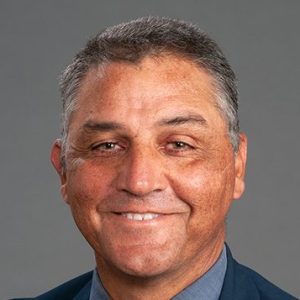
Ronny A. Bell, Ph.D., MS
Chair, Division of Pharmaceutical Outcomes and Policy
Professor
bellr@unc.edu
Office: (919) 962-0080
The Chair of the Division of Pharmaceutical Outcomes and Policy (DPOP) serves as the chief academic and administrative officer for the Division. The Chair is responsible for serving the Division faculty, staff, and students, and ensuring that the work of the Division across teaching, research, and education in pharmaceutical outcomes and policy is in strategic alignment with the mission of the School.

Stefanie Ferreri, Pharm.D.
Chair, Division of Practice Advancement and Clinical Education
Henry L. Smith and James L. Olsen, Ph.D. Distinguished Professor in Pharmacy Practice
stefanie_ferreri@unc.edu
Office: (919) 843-9765
The Chair of the Division of Practice Advancement and Clinical Education (PACE) serves as the chief academic and administrative officer for the Division. The Chair is responsible for serving the Division faculty, staff, and students, and ensuring that the work of the Division across teaching, research, and education in practice advancement and education are in strategic alignment with the mission of the School.

David Lawrence, Ph.D.
Chair, Division of Chemical Biology and Medicinal Chemistry
Fred Eshelman Distinguished Professor
lawrencd@email.unc.edu
Office: (919) 962-8907
The Chair of the Division of Chemical Biology and Medicinal Chemistry (CBMC) serves as the chief academic and administrative officer for the Division. The Chair is responsible for serving the Division faculty, staff, and students, and ensuring that the work of the Division across teaching, research, and education in chemical biology and medicinal chemistry is in strategic alignment with the mission of the School.
In addition to the responsibilities summarized above for all chairs, the Chair of CBMC, in collaboration with the Associate Dean for Research, supervises the Director of the Center for Integrative Chemical Biology and Drug Discovery (CICBDD) whose faculty role resides within CBMC to ensure alignment of Center activities with the mission of the Division and the School.

Craig Lee, Pharm.D., Ph.D.
Chair, Division of Pharmacotherapy and Experimental Therapeutics
John A. and Deborah S. McNeill, Jr. Distinguished Professor
craig_lee@unc.edu
Office: (919) 843-7673
The Chair of the Division of Pharmacotherapy and Experimental Therapeutics (DPET) serves as the chief academic and administrative officer for the Division. The Chair is responsible for serving the Division faculty, staff, and students, and ensuring that the work of the Division across teaching, research, and education in pharmacotherapy and experimental therapeutics is in strategic alignment with the mission of the School.
PROFESSIONAL PROGRAM LEADERSHIP
The Professional Program Leadership Team provides the global vision and is responsible for strategic oversight of the PharmD program (from admissions to graduation), ensures alignment of program initiatives with it’s mission (Strategy, Risk, and Alignment), resource availability (Resource and Budget) and ensures collaboration across all aspects of the program (Stakeholder Engagement). The professional program leadership team reviews and discusses important initiatives and may support various initiatives to advance on to the Curriculum and Assessment Committee to ensure sustainability (Curricular Sustainability) and alignment with mission and vision.

Adam Persky, Ph.D.
Associate Dean, Professional Education
Professor
apersky@unc.edu
Office: (919) 966-9104
The Associate Dean for Professional Education ensures the PharmD program remains at the forefront of health professions and pharmacy education through implementation of innovations in education and ensures sustainability of the curriculum. The Associate Dean maintains desired outcomes of the PharmD program and supports these using enabling competencies and entrustable professional activities (EPAs). In partnership with the Division Chairs and relevant faculty as well as other stakeholders and partners, the Associate Dean identifies opportunities to advance the education and training of our students in alignment with contemporary pharmacy practice and emerging opportunities in healthcare. The Associate Dean also maintains guiding principles of the curriculum, revisiting the guiding principles if they require refinement over time and ensures faculty alignment with these guiding principles.

Nicki Pinelli Reitter, Pharm.D., M.S.
Associate Dean, Experiential Programs and Interprofessional Affairs
Associate Professor
nickipinelli@unc.edu
Office: (919) 962-1641
The Associate Dean for Experiential Programs and Interprofessional Affairs works closely with the Associate Dean for Professional Education to integrate didactic and experiential courses and ensures the PharmD program and assessment strategies remain at the forefront of health professions and pharmacy education. The Associate Dean serves as the lead administrator of the experiential and interprofessional education and practice curricula. The Associate Dean is responsible for building and strengthening strategic partnerships with external constituents for delivery of the PharmD program relative to clinical and interprofessional training and serves as the School Liaison to the NC AHEC Program Office. The Associate Dean oversees the Office of Experiential Programs and Interprofessional Affairs. This includes administration of the experiential education program for the PharmD curriculum, preceptor and practice site development, interprofessional education and practice initiatives, student advising and support services for students in the experiential education environment, and career services for professional students.

Wendy Cox, Pharm.D.
Associate Dean, Admissions and Accreditation
Associate Professor
wendy_cox@unc.edu
Office: (919) 966-9990
The Associate Dean for Admissions and Accreditation works closely with leadership, faculty, staff, and students at the School as well as external stakeholders to ensure that the pipeline for students and admitted students in our PharmD program are of the highest caliber. The Associate Dean oversees accreditation of the professional program, leads recruitment and admission to the PharmD program, develops strategic partnerships to achieve the BEYOND goals, collaborates with the Office of Organizational Diversity and Inclusion and Office of Student Affairs to develop educational partnerships and oversee content for high schools and colleges educating underserved communities in NC and beyond.

Amanda Corbett, Pharm.D.
Assistant Dean, Professional Education
Associate Professor
ahcorbet@email.unc.edu
Office: (919) 843-2280
The Assistant Dean for Professional Education is responsible for leading the integration of curricular innovations and ensuring the implementation and execution of a bold, transformative professional curriculum, including domestic, global, and certificate programs in the professional program. The Assistant Dean works closely with the Associate Dean for Professional Education to ensure the curriculum is designed optimally for the current needs of the pharmacy profession; students are successful in meeting the mission of the Doctor of Pharmacy program; and curriculum resources are optimized in the design and delivery of the program. Working closely with the Division Chairs and faculty, the Assistant Dean will ensure that teaching needs are met across the PharmD curriculum in alignment with course/student needs and expertise/availability of the faculty. The Assistant Dean will also serve as a liaison between the faculty-at-large, course stream leaders, and members of the Curriculum and Assessment Committee (CAC), collaborate with the Office of Student Affairs, and work closely with the Center for Innovative Pharmacy Education and Research (CIPhER) to proactively identify opportunities for faculty development.
GRADUATE EDUCATION PROGRAM LEADERSHIP

Michael Bruce Jarstfer, Ph.D.
Assistant Dean, Graduate Education
Associate Professor
jarstfer@email.unc.edu
Office: (919) 966-6422
The Assistant Dean for Graduate Education serves as the Director of Graduate Studies for the Pharmaceutical Sciences Ph.D. and M.S. programs and assists the Dean in ensuring that our graduate programs provide the highest level of future-focused training for our graduate students. The Assistant Dean for Graduate Studies works closely with the Associate Dean for Research and Graduate Education on all matters related to graduate training. Major areas of responsibility include: providing leadership to sustain and advance the Graduate Program in Pharmaceutical Sciences; leading Graduate Program recruitment, admissions, progression, and graduation; maintaining a contemporary, high-quality graduate curricula; pursuing funding to support the Graduate Program; overseeing student achievement of core competencies in the Graduate Program; and supporting the development of new residential and online graduate programs and training initiatives.


